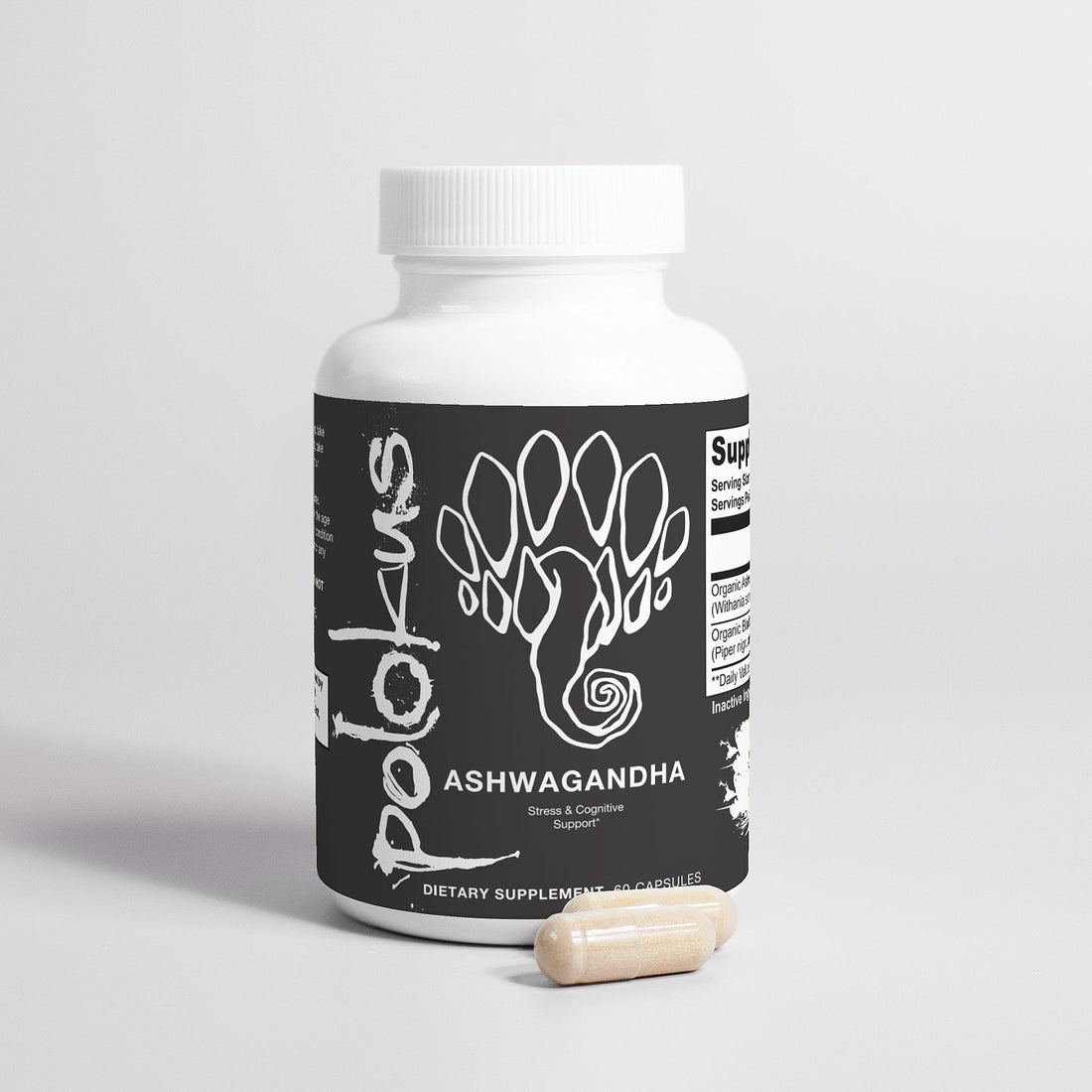
Ashwagandha: Stress Relief, Better Sleep, and Athletic Performance
Share
Ashwagandha (Withania somnifera) is a revered herb in Ayurvedic medicine, recognized for its adaptogenic properties that help the body manage stress. Recent clinical studies have explored its efficacy in reducing stress and anxiety, improving sleep quality, and enhancing athletic performance. This article summarizes findings from peer-reviewed studies published in the last five years, focusing on optimal dosages, long-term safety, and specific health benefits.
Stress and Anxiety Reduction
Chronic stress and anxiety can significantly impact overall health. Ashwagandha has been studied for its potential to alleviate these conditions. A systematic review and meta-analysis of 12 randomized controlled trials involving 1,002 participants found that ashwagandha supplementation significantly reduced anxiety and stress levels compared to a placebo. The analysis indicated that doses ranging from 300 to 600 mg per day over 8 weeks were particularly effective (Lopresti et al., 2022).
Another study focusing on college students reported that a 30-day regimen of 700 mg daily ashwagandha supplementation led to improved stress levels and sleep quality. Participants noted enhanced mental clarity and reduced food cravings, suggesting a broader impact on well-being (Baker et al., 2022).
Improvement in Sleep Quality
Sleep disturbances are a common concern, often linked to stress and anxiety. Recent research has substantiated ashwagandha's role in promoting better sleep. A systematic review and meta-analysis encompassing five randomized controlled trials with 400 participants concluded that ashwagandha extract significantly improved overall sleep quality. The benefits were more pronounced in individuals with insomnia, with dosages of 600 mg per day over 8 weeks yielding the most notable improvements (Salve et al., 2021).
Furthermore, a randomized, double-blind, placebo-controlled study observed that participants taking 300 mg of ashwagandha root extract twice daily experienced significant enhancements in sleep quality and mental alertness upon waking. These findings underscore ashwagandha's potential as a natural aid for sleep-related issues (Langade et al., 2020).
Enhancement of Athletic Performance
Ashwagandha's adaptogenic properties extend to physical performance, with several studies highlighting its benefits for athletes and physically active individuals. A systematic review and meta-analysis of 12 studies revealed that ashwagandha supplementation improved strength, power, and cardiorespiratory fitness. Participants consuming doses between 330 to 1,000 mg daily over periods ranging from 8 to 24 weeks exhibited significant enhancements in VO2 max and muscle strength (Bonilla et al., 2021).
Additionally, ashwagandha has been associated with reduced exercise-induced muscle damage and improved recovery. These effects are attributed to its anti-inflammatory and antioxidant properties, which may help mitigate oxidative stress during intense physical activity (Wankhede et al., 2025).
Dosage and Long-Term Safety
Determining the appropriate dosage of ashwagandha is crucial for maximizing benefits while ensuring safety. Clinical trials have commonly used doses ranging from 300 to 600 mg per day, with some studies exploring up to 1,000 mg daily. Short-term use within these dosage ranges has been well-tolerated, with minimal adverse effects reported.
Regarding long-term safety, a randomized, double-blind, placebo-controlled study involving 80 healthy participants assessed the effects of 300 mg of ashwagandha root extract taken twice daily over 8 weeks. The study found no significant changes in hematological and biochemical parameters, indicating good tolerability and safety within this period (Langade et al., 2020).
However, data on the effects of ashwagandha supplementation beyond 12 weeks are limited. While short-term use appears safe for most individuals, further research is needed to establish comprehensive safety profiles for prolonged consumption.
Conclusion
Ashwagandha demonstrates promising benefits in reducing stress and anxiety, improving sleep quality, and enhancing athletic performance. Clinical evidence supports the efficacy of daily supplementation, particularly within the 300 to 600 mg range over periods of 8 to 12 weeks. While short-term use is generally considered safe, individuals should consult healthcare professionals before initiating supplementation, especially for long-term use or if underlying health conditions exist.